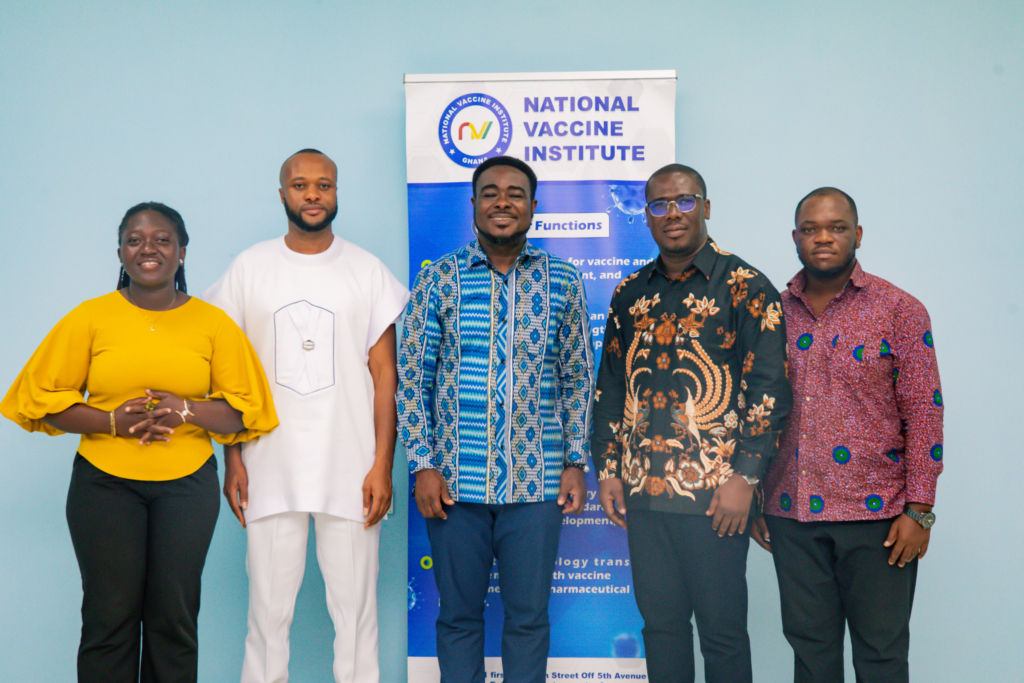
The Indonesian government has promised to provide technical and logistics to support Ghana achieve its vaccine self-sufficiency bid.
This partnership would see Ghana develop a robust vaccine production hub on the African continent, thereby improving the continent’s healthcare capacity, leveraging Indonesia’s global track record in vaccine manufacturing.
The Honorary Consul of Indonesia to Ghana, H.E. Paskal A.B. Rois, made this known when he paid a working visit to the National Vaccine Institute (NVI) in Accra.
He had discussions with the Chief Executive Officer, Dr. Sodzi Sodzi-Tettey, and his Deputy Dr. Faisal Nuhu, stemming from deepening Ghana–Indonesia relations in the health sector, particularly in vaccine research, development, and local production.
Mr. Rois underscored Indonesia’s expertise through Bio Farma, a state-owned pharmaceutical giant, which produces more than 2.3 billion doses of vaccines annually and supplies to over 150 countries under World Health Organization (WHO) and UNICEF certifications.
He explained that the collaboration would not only help reduce Africa’s heavy reliance on vaccines from the Western world but also position Ghana as a vaccine manufacturing leader in the sub-region.
He made known an initiative to help build human capacity in the technicalities of producing vaccines coupled with Indonesian government-sponsored scholarships that continue to benefit Ghanaians.

He disclosed ongoing discussions with Indonesia’s Ministry of Health to facilitate the supply of Monkeypox test kits to Ghana, to aid in the fight against the infectious disease caused by the monkeypox virus.
He proposed “a stronger institutional cooperation between Ghana’s Food and Drugs Authority (FDA) and Indonesia’s National Agency of Drug and Food Control to ensure regulatory harmonization in vaccine development and clinical trials.”
The Chief Executive Officer of the National Vaccine Institute, Dr. Sodzi-Tettey welcomed the initiative and assured of his outfit’s readiness to collaborate towards making Ghana a center for vaccine production, as international donors prepare to phase out.
He emphasized that the government’s support and regulatory oversight by the FDA would be crucial to the success of such an ambitious project.
He indicated that the Institute had already engaged with the Atlantic Life Sciences, and the Noguchi Memorial Institute for Medical Research as important building blocks for Ghana’s vaccine self-sufficiency agenda.
Dr. Sodzi-Tettey recommended a collaboration between Ghana’s Ministry of Health and Indonesia’s towards formalizing training opportunities to enhance human resource development.
“This would create a structured framework for Ghanaian health professionals to access specialized training programs in Indonesia with clear guidelines on participation and knowledge transfer”, he said.
